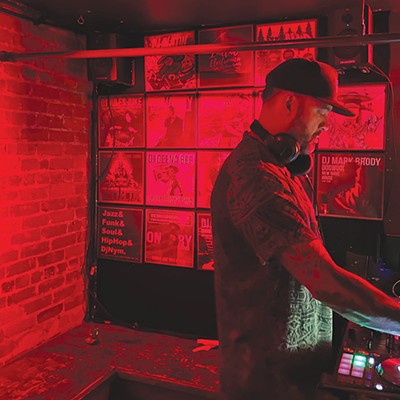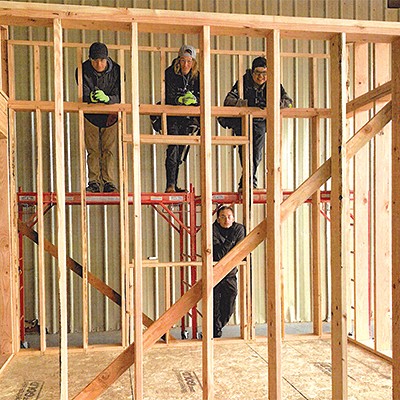Although there is no known vaccination or cure, corresponding directly with rising national concerns about the Ebola virus, there has been a noticeable uptick in flu vaccinations this October throughout American cities. It is a simple and understandable correlation: Americans are thinking more about their vulnerabilities to infectious diseases, and the role that our interconnected lifestyles play in carrying those viruses.
But like politics—which have been on center stage display this week—the question about to vaccinate or not to vaccinate is a strongly held opinion, with each side increasingly entrenching with its own viewpoints and studies. And, increasingly these viewpoints are tied to demographics that correspond to Bend's population—white and privileged.
In dramatically increasing numbers, children of white, wealthy and educated parents have been refusing or bypassing vaccinations. A 2006 study in the Journal of the American Medical Association showed that between 1991 and 2004, the percentage of children whose parents opt out of vaccines increased 6 percent a year, resulting in a more than twofold increase in overall numbers of un-vaccinated children.
The results on those children—and, more broadly, the larger population—are not surprising and have been well documented. Take, for example, the neighborhoods of Malibu and Beverly Hills where the Hollywood Reporter analyzed public health information and found 57 percent of children at the Kabbalah Children's Academy in Beverly Hills are unvaccinated and at the Waldorf Early Childhood Center in Santa Monica, 68 percent. Those vaccination rates are lower than those in South Sudan.
The result? A 2010 outbreak of whooping cough larger than any since World War II. Ten children died.
And, these outbreaks are not outliers, but more commonly the rule: In the first half of 2012, Washington suffered 2,520 cases of whooping cough, a 1,300 percent increase from the previous year. Even measles, which had virtually been whipped out in America by 2000, has returned this year in staggering numbers, with the Center for Disease Control reporting 600 cases by September, a number representing the entirety of the previous four years of cases combined.
Perhaps, one of the best books to enter the conversation about infectious diseases, vaccinations, and social interaction was released late this summer, before the current alertness about Ebola and infections: On Immunity: An Inoculation by Eula Biss, an engaging read that intimately and smartly explores that very connection between infectious diseases and social interaction. A writer based in Chicago, and the winner of the National Book Critics Circle Award for criticism in 2009 and a Guggenheim Fellow, Biss tells the story about her physical and philosophical journey through attitudes and opinions about immunizations and social interactions. More specifically, the narrative chronicles her pregnancy and growing concern about her child's health.
As Biss moves further into motherhood and examines the ways in which "we are all responsible for each other," she interestingly draws in echoes of the Occupy Movement, and a sense of populism, and public responsibility. She writes about one mother's resistance to vaccination, but who had never considered that while her child may be strong enough to fight off a virus, he could pass it on to a baby, an elderly or someone going through chemotherapy who does not have a strong immune system. Vaccines were meant to enlist a "majority in the protection of a minority," Biss writes. Today, "a privileged 1 percent are sheltered from risk while they draw resources from the other 99 percent"—a parallel that she draws from the financial disparity that the Occupy Movement pointed out, and now points those privileges back at some of the same people who may have been most vocal for equality. It is in this accusation and conclusion that best exposes the ironies and the deepening webs of responsibilities.
For our Wellness Issue, we wish each of you good health, and also an awareness not only about responsibility for your own body, but for the health of the entire community.


























